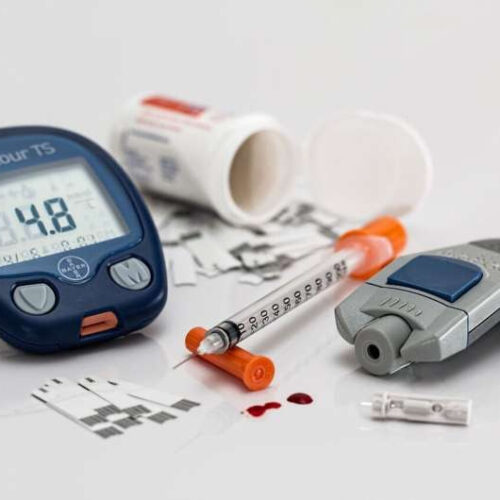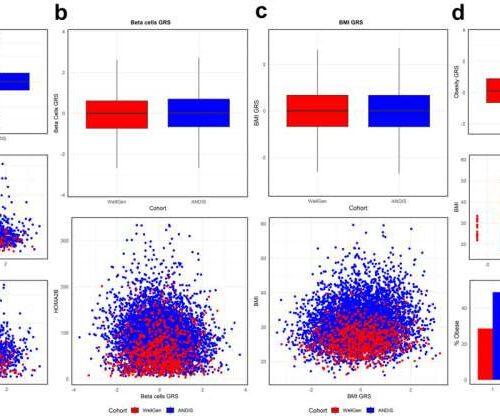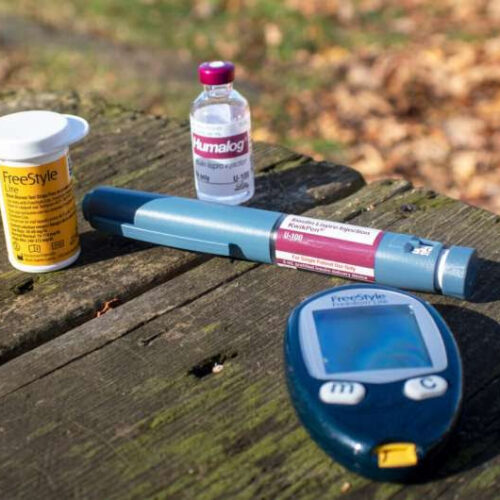by Mary Durlak, University at Buffalo Post-operative panoramic X-ray; fixed implant-supported restoration. Credit: University at Buffalo If you’re a health care provider treating people with type 2 diabetes (T2D), University at Buffalo researcher Mehmet A. Eskan has this suggestion for you: check your patients’ teeth. In a study published in PLOS ONE on April 14, Eskan demonstrates that...
Category: <span>Diabetes</span>
Diabetes drugs associated with fewer adverse cardiac events in older veterans
by Vanderbilt University Medical Center Credit: Pixabay/CC0 Public Domain GLP1 receptor agonists—a class of diabetes medications—are associated with fewer major adverse cardiovascular events than another type of diabetes drug (DPP4 inhibitors) in older veterans with no prior heart disease. The findings, reported in Annals of Internal Medicine, will aid clinicians in choosing a diabetes drug regimen for older...
Swedish research about different forms of type 2 diabetes is relevant for Indian people
by Lund University Box and whisker plots show distributions of genetic risk scores (GRSs) for fasting insulin (a), beta-cells (b), BMI (c) and obesity (d) in WellGen (India) and ANDIS (Sweden) studies; and scatterplots of related phenotypes for the two populations. WellGen is shown in red and ANDIS in blue. For obesity GRS, proportion of patients...
Potency drug reduced long-term blood sugar in type 2 diabetes
UNIVERSITY OF GOTHENBURG IMAGE: PER-ANDERS JANSSON, SAHLGRENSKA ACADEMY AT THE UNIVERSITY OF GOTHENBURG. CREDIT: PHOT BY JOHAN WINGBORG/UNIVERSITY OF GOTHENBURG. A small group of patients with type 2 diabetes significantly improved their long-term blood sugar levels when treated with high-dose tadalafil, a medication used to treat erectile dysfunction. The result from the University of Gothenburg pilot...
Vitamin D and Type 2 Diabetes: New Insights
JoAnn E. Manson, MD, DrPH February 15, 2023 Hello. This is Dr JoAnn Manson, professor of medicine at Harvard Medical School and Brigham and Women’s Hospital. I’d like to talk with you about a recent report in Annals of Internal Medicine on vitamin D and type 2 diabetes. This report provides some new insights, but it also...
One-hour endoscopic procedure could eliminate need for insulin for type 2 diabetes
by Digestive Disease Week Credit: Unsplash/CC0 Public Domain A procedure that uses controlled electrical pulses to induce changes to the lining of the first part of the small intestine could allow patients with type 2 diabetes to stop taking insulin and still maintain glycemic control, according to a preliminary first-in-human study that will be presented...
Individualized glycemic targets for older type 2 diabetes patients supported by cohort study
by Justin Jackson, Medical Xpress Credit: Unsplash/CC0 Public Domain An international group of researchers led by Monash University, Australia, supports clinical guideline recommendations for relaxed glycemic targets in older type 2 diabetes patients with results from a large cohort study. The research paper, “Dementia Risk in People With Type 2 Diabetes,” published in JAMA Neurology, looked for a cumulative association...
Better blood sugar regulation
WILEY Patients with type 1 diabetes live with a constant risk of hyper- or hypoglycemia. Precisely controlled insulin release could help to improve regulation of their blood sugar levels. In the journal Angewandte Chemie, a research team has now introduced a novel insulin formulation that can be switched on by glucose: Lipid nanoparticle carriers release more...
Weight loss puts type 2 diabetes into remission for five years, finds research
by Newcastle University Professor Roy Taylor, Newcastle University. Credit: Newcastle University New findings have revealed that nearly a quarter (23%) of participants who were in remission from type 2 diabetes at two years in a clinical trial remained in remission at five years. The participants no longer needed to use diabetes medications to manage their blood sugar levels. Those...
Intermittent Fasting Plus Early Eating May Prevent Type 2 Diabetes
Liam Davenport April 18, 2023 Individuals at increased risk of type 2 diabetes may be able to reduce their risk via a novel intervention combining intermittent fasting (IF) with early time-restricted eating, indicate the results of a randomized controlled trial. The study involved more than 200 individuals randomized to one of three groups: eat only in the...







